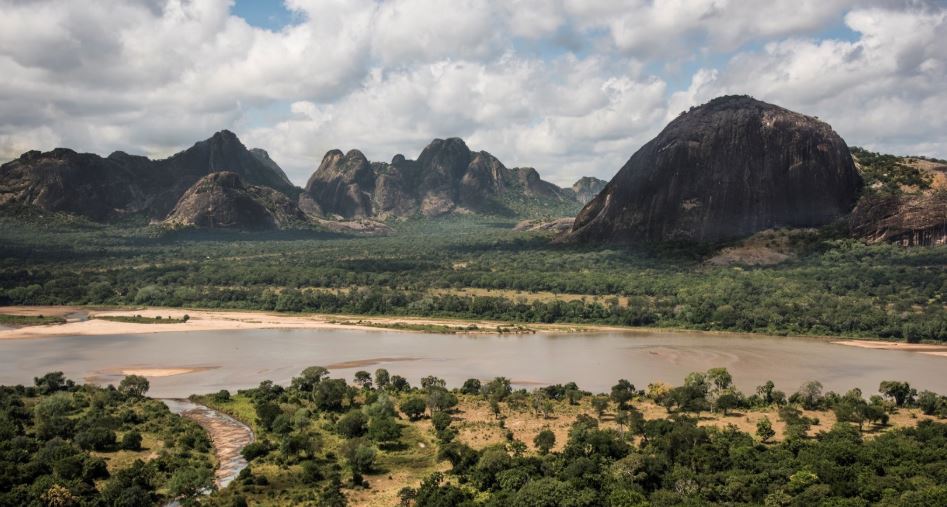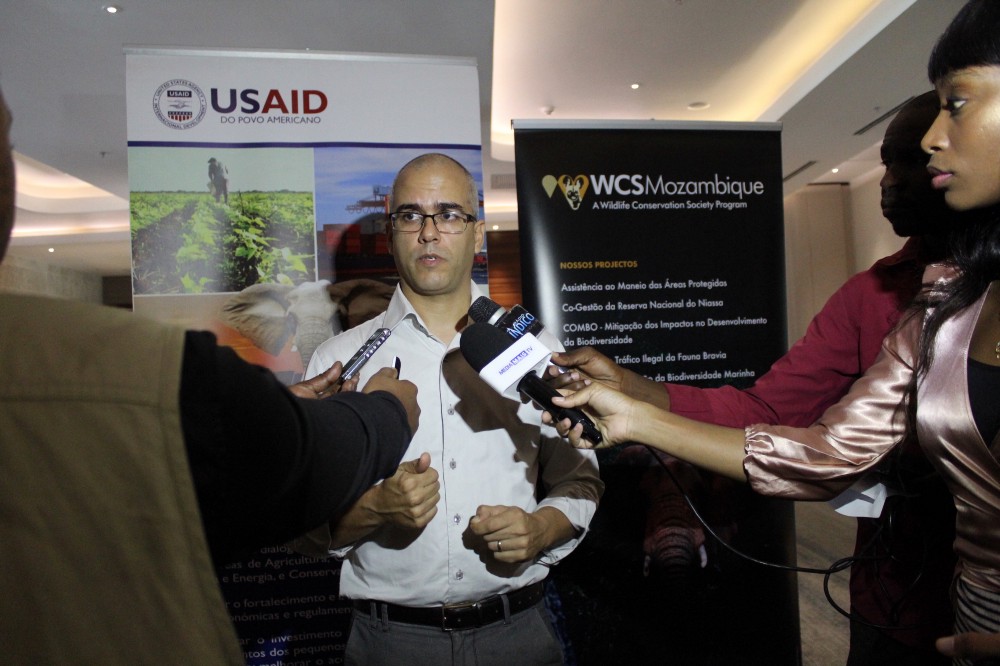
By Hugo Costa, Mozambique Project Director, Wildlife Conservation Society. Read the article in Medium.
Friday the 13th was an uncharacteristically lucky day for some of the world’s most threatened species as almost 20 Mozambican institutions, several from the Government, established the Key Biodiversity Areas (KBAs) National Coordination Group (NCG).
This national platform will coordinate the identification, documentation, and description of critical priority areas for species conservation in Mozambique. The ground-breaking new initiative supports plans and activities for the conservation, management, and protection of the nation’s threatened wildlife and ecosystems.
Only three years ago, several of the world’s leading nature conservation organizations, including the Wildlife Conservation Society (WCS), launched the Key Biodiversity Areas (KBA) Partnership. The International Union for Conservation of Nature (IUCN) established KBAs in 2016 as sites that contribute significantly to the global persistence of biodiversity in terrestrial, freshwater, marine and subterranean systems.

The international partnership currently includes 13 global organizations. Together we have articulated a vision to ensure that “a comprehensive network of sites that contribute significantly to the global persistence of biodiversity is appropriately identified, correctly documented, effectively managed, sufficiently resourced, and adequately safeguarded”.
As a member, WCS has been raising funds to identify KBAs across its priority regions. WCS already led a KBA identification project in Uganda and is currently doing similar work in Canada, Myanmar, and Mozambique. It is also implementing additional KBA related activities in Belize, Bolivia, Cambodia, Ethiopia, Guatemala, Solomon Islands and Tanzania.
The International Union for Conservation of Nature (IUCN) established KBAs in 2016 as sites that contribute significantly to the global persistence of biodiversity in terrestrial, freshwater, marine and subterranean systems.
Specifically, in Mozambique, WCS began working with support from SPEED+ and USAID last February to lead and implement a new project: “Red List of Threatened Species, Ecosystems, Identification and Mapping of Key Biodiversity Areas (KBAs) in Mozambique.”
A collaboration with the Government, though the National Directorate of Environment, and several partners, this project has four key goals: 1) create a National Platform for engaging with Mozambique officials on the IUCN Red List and Key Biodiversity Areas; 2) conduct global Red List assessments for endemic and near endemic animal species; iii) identify and map KBAs according to IUCN’s 2016 Global Standards, and iv) create the national capacity manage impacts on priority biodiversity.
So far, more than 100 national, regional, and international specialists have contributed to the project and three workshops have already been undertaken. KBA Secretariat head Dr. Andy Plumptre led the first in May 2019, familiarizing 40 national specialists with the KBA standards and technical guidelines application.
In June, the project team organized a Red Listing species workshop, at which more than 30 specialists applied the Red Listing criteria to 75 Mozambican endemic or near endemic species of butterflies, freshwater fish, amphibians, and reptiles.
In June, the project team organized a Red Listing species workshop, at which more than 30 specialists applied the Red Listing criteria to 75 Mozambican endemic or near endemic species of butterflies, freshwater fish, amphibians, and reptiles. A total of 35 of these species were preliminarily assessed as threatened. It is expected that this work will contribute to the definition, by the Government, of a list of potential species to be protected.
The last workshop took place on the 14 and 15 November 2019, in Maputo. Attended by 60 national and international participants, representing different sectors involved in the project (Government institutions, academia, donors, NGOs, consultants and developers), it resulted in the delineation of 41 potential KBAs in Mozambique. Of those, six are marine and two are exclusively freshwater.
The specialists divided into four working groups corresponding to different geographies within the country (northern, central, southern and marine). WCS’s Conservation Planning unit helped guide the participants as they assessed data collected and analyzed by the project team for the past 8 months.
The workshop members applied KBA criteria to plants, insects, freshwater fish, amphibians, reptiles, birds, mammals and marine biodiversity. Ecosystems will also be considered in the coming months as the workshop develops an historical ecosystem map for the country and conducts a Red Listing of ecosystems exercise.
The final validation workshop will take place in March 2020. Until then it is expected that as additional data is analyzed, more potential key biodiversity areas will be identified. The project will conclude on May 2020.
We believe that the information and areas identified with this project will contribute to the effective implementation of the National Biodiversity Strategy and Action Plan (NBSAP) required by the Convention of Biological Diversity (CBD).
This project represents one of several efforts by WCS to support several African countries to reconcile economic development and biodiversity conservation (see COMBO Project) by improving policy, legislation, and technical guidelines, and by creating the national capacity to identify, avoid, minimize, restore, and offset impacts of development projects on priority biodiversity.
It is expected that the application of the KBA Standards in Mozambique will have a major impact on improving the country’s biodiversity conservation policy framework. It will provide more detailed geographic boundaries for high priority biodiversity areas that can be used to guide and minimize the impact of key infrastructure and economic developments defined in the Government’s plans.
In Mozambique, where WCS has a Memorandum of Understanding with the Government, efforts are being made so that KBAs are integrated as areas to be avoided in the development plans that are currently underway in the country for the terrestrial and marine realms.
Finally, we believe that the information and areas identified with this project will contribute to the effective implementation of the National Biodiversity Strategy and Action Plan (NBSAP) required by the Convention of Biological Diversity (CBD), and will assist Mozambique with its engagement with the CBD CoP in October 2020 when the CBD parties adopt new post-2020 biodiversity targets.